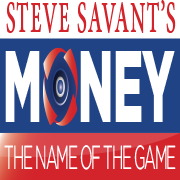 Mesa 1/24/2018 11:00:00 AM
Mesa 1/24/2018 11:00:00 AM
News / Finance
Alternative College Funding
There are Many Ways to Skin a Cat & Alternative College Funding Options As Well

If you have investments you’d like to give to your child, you may want to consider opening a custodial account under the Uniform Gifts to Minors Act (UGMA) or the Uniform Transfers to Minors Act (UTMA). Through these accounts, a custodian you appoint—which could be yourself—manages investments owned in a minor’s name. Once the minor reaches the age of majority, he or she may assume full ownership of the account.
Establishing UGMA and UTMA accounts means designating specific investments for a child’s benefit. By doing so, you may be able to reduce your estate and the taxes the estate could potentially owe. But these accounts also have certain drawbacks. The good news about investing for college is that it’s encouraged by the tax code. That means that as long as you stick to the rules, you and your child can enjoy the benefits of tax-free earnings. A number of investment programs, such as Coverdell education savings accounts (ESAs), 529 savings plans, and 529 prepaid tuition plans, let you take advantage of this provision. That can mean having between 15% and 35% more money to spend, depending on your tax bracket.
With student loans, applying for financial aid typically means submitting your financial information for review by filling out the Free Application for Federal Student Aid (FAFSA). Most state and federal funding programs—as well as many university-sponsored grants, scholar- ships, and nonfederal aid—require that students fill out the FAFSA, which assesses each student’s eligibility for federal aid by evaluating his or her family’s total assets. All the assets in 529 plans, UGMAs UTMAs and Coverdale accounts are included in the FARSA asset calculation. But did you know the assets held annuities and cash value life insurance are not included in the FAFSA application. This means by allocating assets to these two financial products, the aid could increase significantly because it’s not included in your asset inventory. Indexed universal life is a relatively new asset class and an alternative product for your educational funding strategies.
